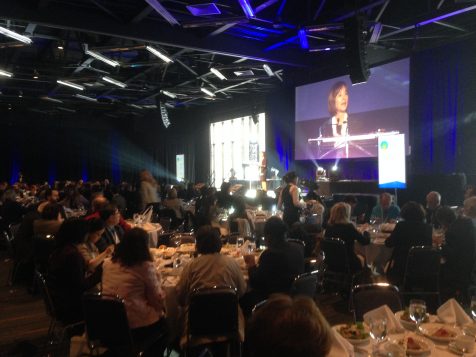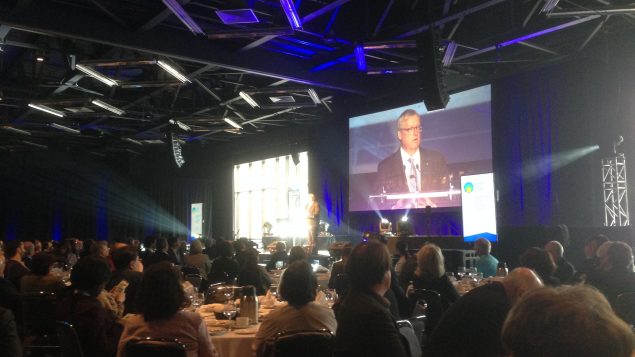Some of the world’s top minds in global health and health care delivery have gathered in Montreal this week for an international summit that will focus on the challenges of providing healthcare in increasingly pluralistic societies such as the one in Canada.
More than 600 researchers, health care providers, policy-makers, and representatives of non-governmental organizations from over two dozen countries are attending the regional meeting of the World Health Summit, the first such high-level conference in North America.
The theme of the two-day meeting hosted by the Université de Montréal and the Montreal Clinical Research Institute at Montreal’s Palais des Congres convention centre is “Health and Healthcare Delivery in Pluralistic Societies,” said World Health Summit International President Dr. Hélène Boisjoly, Dean of Medicine at the University of Montreal.
“The aim is to have different groups in society, including scholars, industry, civil society, government and students discuss health and healthcare delivery for different populations in Canada,” Boisjoly said.
(click to listen to the full interview with Dr. Hélène Boisjoly)

World Health Summit International President Dr. Hélène Boisjoly, Dean of Medicine at the University of Montreal, addressed the luncheon at the World Health Summit in Montreal on May 8, 2017. Photo: Radio-Canada, Levon Sevunts
The summit will focus in particular on delivering healthcare to Canada’s First Nations communities and migrants, Boisjoly said.
“There are many challenges,” Boisjoly said. “First of all having healthcare professionals that are culturally competent to interact with these communities: they have their reality, cultures, ways of approaching diseases.”
Then there is the question of having a sufficient number of healthcare professionals to work as an interdisciplinary team that can respect these different populations, she said.
“Even in Montreal or in Canada when someone from an Aboriginal people come into a hospital, I’m not sure they always feel welcome,” Boisjoly said. “And some of them are even afraid. And this applies to migrants also – just entering the hospital is a challenge.”
Almost half of the participants are students, she said.
“That was our goal, we wanted the the younger generation be here and hear about the social determinants of health and innovative approaches,” Boisjoly said. “It’s also very important that young Aboriginals be encouraged to be educated in health, but also as lawyers and engineers, and come back to their communities. We really have to work together to change the cycle of precarious life.”
The delivery of health care to various migrant communities was another major theme of the summit in Montreal.
Along with First Nations health, health and immigration, the conference in Montreal will also discuss the development of precision medicine, rare and genetic diseases, viral infections, diabetes, and antibiotic resistance; environmental, social and cultural determinants of health and the transformation of the urban environment, as well as the future of medical education and the changing role of physicians in the society.







For reasons beyond our control, and for an undetermined period of time, our comment section is now closed. However, our social networks remain open to your contributions.